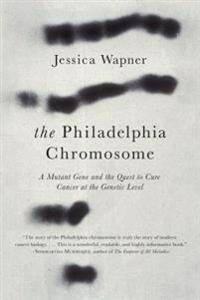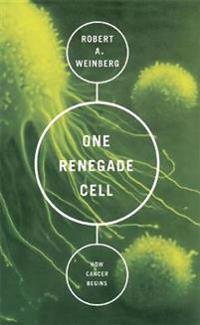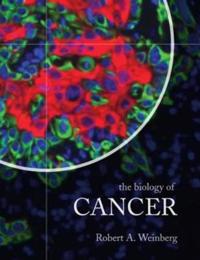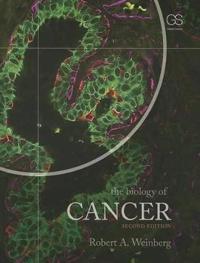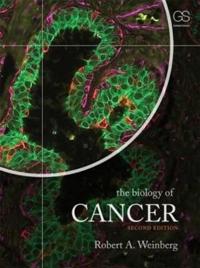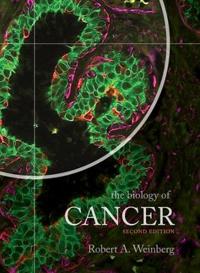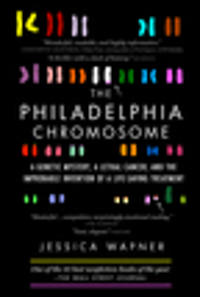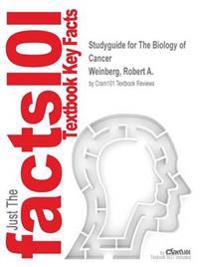The Philadelphia Chromosome: A Mutant Gene and the Quest to Cure Cancer at the Genetic Level (Inbunden)
avJessica Wapner, Robert A. Weinberg
ISBN: 9781615190676 - UTGIVEN: 201305One of "Publishers Weekly" s Top Ten Spring 2013 Science BooksPhiladelphia, 1959: A scientist scrutinizing a single human cell under a microscope detects a missing piece of DNA. That scientist, David Hungerford, had no way of knowing that he had stumbled upon the starting point of modern cancer rese[...]
One Renegade Cell (Häftad)
avRobert A. Weinberg
ISBN: 9780465072767 - UTGIVEN: 199909One of the leading cancer researchers in the world, Robert A. Weinberg is perfectly suited to describe the search for cancer's origins from the early days of this century to the present. Presuming little knowledge of biology, he tells how a cancer-causing virus was first discovered in 1909, how the [...]
The Biology of Cancer (Storpocket)
avRobert A. Weinberg
ISBN: 9780815340768 - UTGIVEN: 200606The Biology of Cancer is a new textbook for undergraduate and graduate biology students as well as medical students studying the molecular and cellular bases of cancer. The book presents the principles of cancer biology in an organized, cogent, and in-depth manner. The clarity of writing and the luc[...]
The Biology of Cancer (Inbunden)
avRobert A. Weinberg
ISBN: 9780815342199 - UTGIVEN: 201306Thoroughly updated and incorporating the most important advances in the fast-growing field of cancer biology, The Biology of Cancer, Second Edition, maintains all of its hallmark features admired by students, instructors, researchers, and clinicians around the world. The Biology of Cancer is a textb[...]
The Biology of Cancer (Häftad)
avRobert A. Weinberg
ISBN: 9780815342205 - UTGIVEN: 201306Thoroughly updated and incorporating the most important advances in the fast-growing field of cancer biology, The Biology of Cancer, Second Edition, maintains all of its hallmark features admired by students, instructors, researchers, and clinicians around the world. The Biology of Cancer is a textb[...]
The Biology of Cancer (Häftad)
avRobert A. Weinberg
ISBN: 9780815345282 - UTGIVEN: 2014-06Thoroughly updated and incorporating the most important advances in the fast-growing field of cancer biology, The Biology of Cancer, Second Edition, maintains all of its hallmark features admired by students, instructors, researchers, and clinicians around the world. The Biology of Cancer is a textb[...]
The Biology of Cancer (Häftad)
avRobert A. Weinberg
ISBN: 9780815345299 - UTGIVEN: 2014-07Thoroughly updated and incorporating the most important advances in the fast-growing field of cancer biology, The Biology of Cancer, Second Edition, maintains all of its hallmark features admired by students, instructors, researchers, and clinicians around the world. The Biology of Cancer is a textb[...]
The Philadelphia Chromosome (Pocket)
avJessica Wapner, Robert A. Weinberg, Jessica Wapner
ISBN: 9781615191970 - UTGIVEN: 2014-04Philadelphia, 1959: A scientist scrutinizing a single human cell under a microscope detects a missing piece of DNA. That scientist, David Hungerford, had no way of knowing that he had stumbled upon the starting point of modern cancer research the Philadelphia chromosome. It would take doctors and re[...]
Stalin's Forgotten Zion: Birobidzhan and the Making of a Soviet Jewish Homeland, An Illustrated History, 1928-1996 (Pocket)
avRobert Weinberg
ISBN: 9780520209909 - UTGIVEN: 1998-05-22Studyguide for the Biology of Cancer by Weinberg, Robert A., ISBN 9780815342205 (häftad)
ISBN: 9781497022034 - UTGIVEN: 2015-06

